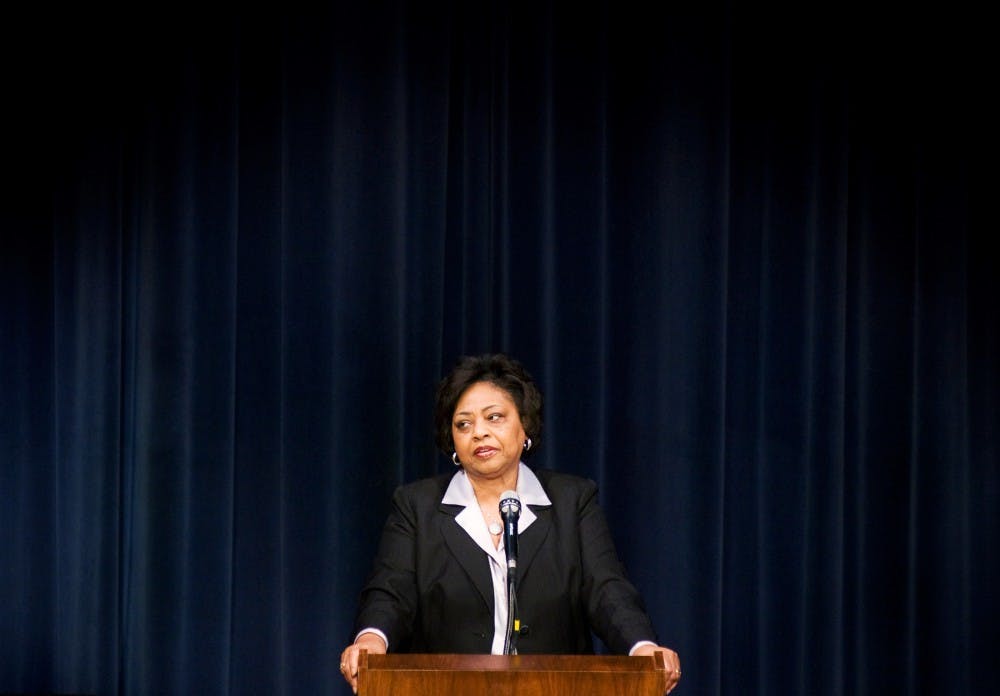The MSU community welcomed Shirley Sherrod on Thursday as she pushed the notion that racism, injustice and stagnant progression of civil rights no longer can be taken out of context.
During the final session of the 11th annual “Slavery to Freedom: An American Odyssey” lecture series hosted by the College of Osteopathic Medicine at Wharton Center’s Pasant Theatre, Sherrod, the former director of rural development in Georgia for the Department of Agriculture, spoke about her experience as a promoter of civil justice.
Sherrod has garnered national attention after an incident in which conservative blogger Andrew Breitbart edited one of her speeches last summer about helping a white farmer, making her speech sound racist in nature, she said during the lecture.
Sherrod sued Breitbart last Friday for “defamation, false light and infliction of emotional distress,” according to CNN.
“I realized that the issues are not all about race, they are about being poor,” she said. “I used … all of the work I’ve done throughout the years and to say if I can let that go and deal with the person as an individual and not look at skin color and help them, then we all need to be able to move to that point.”
Rob Biddle, a coordinator in the Office of Cultural and Academic Transitions, agreed with Sherrod’s message of access to fairness no matter what a person’s color is, he said.
“What mattered was that people who needed access to the information were given it so that they could be more successful in their lives,” Biddle said.
Although the family Sherrod helped came forward to clear her name, she did not stop delivering her message, she said.
“(The allegations) don’t stop me from talking about the issue of racism and how we need to come together,” she said.“They can do another blog if they want to, but I will continue until the day I die to say that we need to deal a death to racism.”
Tolerance is only the beginning of eradicating racism, said Mary Ferguson, the director of the Diversity Services Office at the College of Law. Each individual must go further to learn to respect each other for our differences, she said.
“When you respect someone, you appreciate their ideas, where they come from and all the great diversity that they have,” Ferguson said.
“Our individual differences then come together in unity of a commonality. The commonality here is that we are all part of the MSU family — faculty, staff and students.”
Some students, such as advertising sophomore David Cho, agree with the sentiment of respect.
“If all the people were like (Shirley Sherrod), we wouldn’t have to struggle with racism (or) international and cultural ignorance,” he said. “Cultural differences shouldn’t matter; we should respect each other — that’s it.”
Support student media!
Please consider donating to The State News and help fund the future of journalism.
Discussion
Share and discuss “Sherrod speaks about racism despite troubles” on social media.






